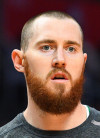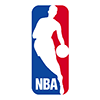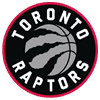
Aron Baynes
38-Year-Old
Free Agent
2025 Stats
PTS
0.0
REB
0.0
AST
0.0
STL
0.0
BLK
0.0
ROS Projections

Calls end to career
Baynes' agent, Daniel Molodvan, announced Wednesday via social media that his client has retired from professional basketball.
ANALYSIS
Baynes, 37, had most recently been playing professionally in his home country with the Brisbane Bullets of Australia's National Basketball League. Before spending the past two seasons with Brisbane, Baynes enjoyed a nine-year run in the NBA from 2012 through 2021 that included stops with the Spurs, Pistons, Celtics, Suns and Raptors. The center averaged 6.0 points and 4.6 rebounds in 16.0 minutes per game over 522 career NBA appearances and won his lone NBA championship with San Antonio in 2014.
Baynes, 37, had most recently been playing professionally in his home country with the Brisbane Bullets of Australia's National Basketball League. Before spending the past two seasons with Brisbane, Baynes enjoyed a nine-year run in the NBA from 2012 through 2021 that included stops with the Spurs, Pistons, Celtics, Suns and Raptors. The center averaged 6.0 points and 4.6 rebounds in 16.0 minutes per game over 522 career NBA appearances and won his lone NBA championship with San Antonio in 2014.
NBA Per Game Stats
Per Game
Total
Per 36
NBA Per Game Stats
Loading Per Game Stats...
2020 NBA Game Log
2020
2019
2018
2017
2016
2025 NBA Per Game Split Stats
Schedule
By Month
Starting/Off Bench
Days Rest
Vs Opp
By Result
2025 NBA Per Game Split Stats
Loading Split Stats...
Advanced Stats
Loading Advanced Stats...
Stat Review
2020
2019
2018
2017
2016
How does Aron Baynes compare to other players?
This section compares his stats with all players from the previous three seasons (minimum 200 minutes played)*. The bar represents the player's percentile rank. For example, if the bar is halfway across, then the player falls into the 50th percentile for that stat and it would be considered average.
True Shooting %
50.3%
Effective Field Goal %
48.5%
3-Point Attempt Rate
33.9%
Free Throw Rate
13.5%
Offensive Rebound %
9.6%
Defensive Rebound %
21.8%
Total Rebound %
15.5%
Assist %
6.9%
Steal %
0.8%
Block %
2.3%
Turnover %
11.0%
Usage %
16.2%
Fantasy Points Per Game
15.0
Fantasy Points Per Minute
0.8
NBA Historical Fantasy Stats
Historical ADP
Loading Historical ADP...
Past Fantasy Outlooks
2020
2019
2018
2017
2016
2015
2014
2013
During his first season with the Phoenix Suns, Baynes had the best year of his career, posting career highs of 11.5 points, 5.6 rebounds, 1.6 assists and 1.4 three-pointers per game. The chief reasoning for his success came from his increased usage as he also averaged a career high of 22.5 minutes per game as the backup center for Phoenix. He's moved on from the Suns, however, inking a two-year, $14.3 million contract with the Raptors after the team lost both Marc Gasol and Serge Ibaka. Baynes figures to start in Toronto, and should again be in line for a career year. If he can see close to 30 minutes per night, he should be one of the better fantasy centers in the league. In the 19 games that Baynes saw 25-plus minutes last season, he averaged 16.3 points, 7.2 rebounds, 2.5 assists and 2.2 threes.
More Fantasy News

To play in Australia
Baynes has agreed to a contract with the Brisbane Bullets of the Australian NBL, Brian Windhorst of ESPN.com reports. The contract has an NBA out, which will allow him to return to the NBA if he can find an interested team.
ANALYSIS
Subscribe now to instantly reveal our take on this news.
Subscribe now to instantly reveal our take on this news.

Healthy, to work out for teams
Baynes (neck) has recovered from his injury and will be working out for NBA teams in Las Vegas on Friday, Brian Windhorst of ESPN reports.
ANALYSIS
Subscribe now to instantly reveal our take on this news.
Subscribe now to instantly reveal our take on this news.

In hospital with neck injury
Baynes remains in the hospital with severe nerve damage in his neck following a freak accident in the locker room during one of Australia's Olympic games, and his status for the upcoming season is now in jeopardy, Shams Charania of The Athletic reports.
ANALYSIS
Subscribe now to instantly reveal our take on this news.
Subscribe now to instantly reveal our take on this news.

Let go by Raps
Baynes was waived by the Raptors on Wednesday, Shams Charania of The Athletic reports.
ANALYSIS
Subscribe now to instantly reveal our take on this news.
Subscribe now to instantly reveal our take on this news.

Adds six points off bench
Baynes posted six points (3-6, FG, 0-2 3Pt, 0-1 FT), four rebounds and three assists across 21 minutes during Thursday's 114-102 loss to Chicago.
ANALYSIS
Subscribe now to instantly reveal our take on this news.
Subscribe now to instantly reveal our take on this news.
Latest Fantasy Rumors

Not ruling out NBA return
Baynes has signed a contract with Brisbane of the Australasian NBL, but it contains an out clause that would allow him to return to the NBA if he gets the opportunity, Brian Windhorst of ESPN.com reports.
ANALYSIS
The 35-year-old center suffered a serious spinal injury last summer during the Olympics and needed to re-learn how to walk, so the fact that Baynes can play basketball again at any level is remarkable. He last played in the NBA for the Raptors in 2020-21, averaging 18.5 minutes over 53 games in a depth role.
The 35-year-old center suffered a serious spinal injury last summer during the Olympics and needed to re-learn how to walk, so the fact that Baynes can play basketball again at any level is remarkable. He last played in the NBA for the Raptors in 2020-21, averaging 18.5 minutes over 53 games in a depth role.

